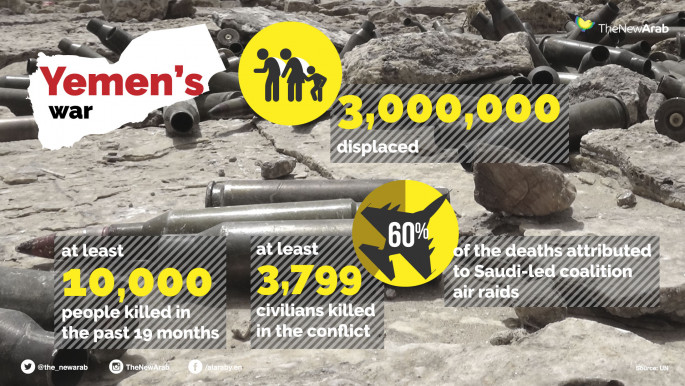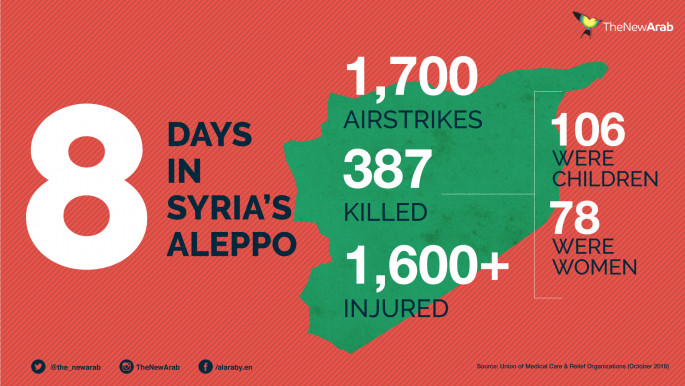The unsavoury members of the UN rights council
Saudi Arabia and Russia should be excluded from the United Nations Human Rights Council, a leading rights organisation said, as world leaders prepared for the council's annual elections on Friday.
Both nations, who have faced criticism for their involvement in conflicts across the Middle East, do not honour the values of the council, and must be reconsidered for the role, Human Rights Watch said.
More than 80 organisations, including CARE International and Refugees International were among the signatories who appealed to the UN ahead of the 47-nation council elections on Friday.
“Electing council members that are truly committed to improving human rights is the responsibility of each and every UN member country, and Saudi Arabia and Russia don’t honour the ideals that underpin the UN Human Rights Council,” said Louis Charbonneau, UN director at Human Rights Watch.
A coalition of non-governmental organisations, including HRW and Amnesty International previously called for the suspension of Saudi Arabia from the Human Rights Council, while Russia has likewise faced similar calls on separate occasions.
“The UN Human Rights Council’s ability to successfully expose and hold violators to account is under threat because a number of countries use it to thwart attempts to expose their own crimes and abuses,” Charbonneau added.
The kingdom’s bad rights record
Saudi Arabia has faced a catalogue of criticisms for its human rights record both within its borders and more recently in neighbouring Yemen where it is leading an Arab coalition battling Houthi rebels.
But for much of its lifetime, residents of the kingdom have cited its conservative attitude towards social issues, including women’s rights, religious freedom and lack of political participation to highlight its list of rights violations.
Hundreds of political activists remain detained behind bars in the kingdom as others are subjected to capital punishment in the kingdom's public squares.
 |
|
| [Click to enlarge] |
Saudi women continue to protest for equality in a nation that prohibits them from driving cars and forces them to depend on male guardians to travel and buy homes among other government protocols.
Though its participation in the rights council has itself has been widely criticised, its 2015 “scandalous” appointment as chair of the rights panel caused outrage across much of the world.
“It’s a sad comment on our world that oil continues to trump basic human rights principles,” UN Watch executive director Hillel Neuer told The Independent last year.
“It’s bad enough that Saudi Arabia is a member of the council, but for the UN to go and name the regime as chair of a key panel only pours salt in the wounds for dissidents languishing in Saudi prisons.”
The kingdom’s rights violations have resurfaced in Yemen where the death toll has continued to increase since the Saudi-led coalition launched a military intervention to reinstall the internationally recognised government of Abdrabbuh Mansour Hadi.
Last month, a Saudi-coalition "double-tap" attack on a funeral wake in Sanaa was described as a violation of international law by a UN panel, leaving Saudi officials hot under the collar.
International condemnation poured towards the kingdom as media headlines criticised the brutal blunder that left more than 150 dead, demanding an arms embargo on the region’s richest nation.
Russian roulette in Syria
Created in 2006, the rights council monitors violations and it set up a ground-breaking commission of inquiry on North Korea that led to calls for war crimes prosecutions of the Pyongyang regime.
The council last week asked the commission of inquiry on Syria to carry out a special investigation into rights abuses in Aleppo – where Russian airstrikes continue to pound residential areas.
 |
|
| [Click to enlarge] |
This week, Human Rights Watch urged UN member states to "question seriously whether Russia's role in Syria - which includes supporting and undertaking military actions which have routinely targeted civilians and civilian objects - renders it fit to serve on the UN's premier inter-governmental human rights institution".
Russia has been supporting Syrian President Bashar al-Assad's war against opposition rebels since September 2015 – an assault repeatedly condemned by the UN human rights council itself.
"Russia continues to sell arms to the Syrian government despite its horrific abuses including the use of chemical weapons," the appeal said.
The besieged rebel-held eastern part of Aleppo has been turned into a "slaughterhouse", a top UN human rights official said, during the opening session of a UN Human Rights Council meeting that adopted a resolution calling for an investigation into the violence in the city.
The eastern side of the Syrian city has witnessed "crimes of historic proportions" as a result of the Russian and Syrian bombardment, UN High Commissioner for Human Rights Zeid Ra'ad al-Hussein said.
Moscow's envoy to the council, Aleksei Goltiaev, condemned the resolution, describing criticism of Syria and Russia as "pathetic".
John Fisher of Human Rights Watch said the resolution passed earlier this week at the special session on Aleppo "sent a clear message that illegal attacks on civilians must end and that those responsible will be held to account".
On Friday, the UN General Assembly will cast ballots to elect the members for a three-year term beginning in 2017.



